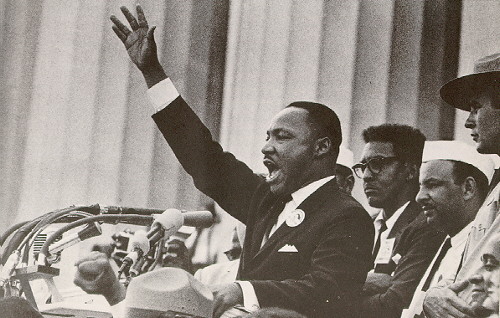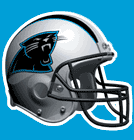A friend showed me this article on the Salt Lake Tribune’s website today. And that lead to my leaving a post on the email discussion group of which I am a member. That diatribe follows and I will apologize now for its length, but it is behind a cut tag, at least!
Today’s top story on the homepage of the Salt Lake Tribune reads: “Living in the Beehive State still a challenge for blacks” Read the story here (http://www.sltrib.com/2004/Jan/01192004/utah/130518.asp).
Hmm. I read this and nodded in agreement to many things that were noted in the article.
A question that I have received is “What is it like to be Black in Utah?” While I understand what the question was supposed to ask, there are more appropriate ways to phrase the question. Someone suggested that if I ever face that question again, that I should respond,”Well, compared to the time when I was White, it’s a little different.”
Yes, there is a small population of African-Americans here.
Yes, there are still people who look askance at me when I go some places.
And I still have a hard time finding Afro Sheen® (the real reason that I shaved my head when I moved here).
But, I don’t find it to be a bad place to live. Nor do I find it a challenge.
The article presented some information of which I was not aware:
Meanwhile, Utah continues to resist the passage of a hate crimes law with teeth. The current version on the books is unenforceable, prosecutors say, because the definition of minority groups that would be protected under the law is too vague. So, in 1998 when a man burned a wooden cross in the Sugar House yard of an interracial couple, the district attorney did not press charges. Instead, federal prosecutors filed the case under the Fair Housing Act.
…and…
In 1983, President Reagan signed the bill that established the first Martin Luther King Jr. national holiday, but for 17 more years the debate in Utah centered on two issues: whether adding a paid state holiday would be too costly and whether King deserved recognition. Utah’s second black state legislator, Terry Williams, regularly urged his colleagues to follow Reagan’s lead.
On Williams’ final attempt, in 1986, Utah lawmakers instead gave the state Human Rights Day, but not before one of them refused to greet King’s widow, Coretta Scott King, when she addressed the House and Senate.
“It’s shameful to think we had perceptions like that,” Dew says. “It is not just a time for blacks, it is a time for everyone to pause and think and value the diversity that America has to offer and recognize Dr. King’s message.”
Utah’s third black lawmaker, Rep. Duane Bourdeaux, D-Salt Lake City, finally pushed a Martin Luther King Jr. Day bill through the Legislature in 2000.
“…too costly?!”
“…whether King deserved recognition?!?”
*blink blink*
One day. One. Day. It’s not like they were trying to push for more broad recognition of Black History Month (which also gets minor note here, but that’s a tirade for another day). Correct me if I’m wrong, but doesn’t Pioneer Day get all of the fanfare – if not more – that some of the other national holidays that are celebrated here? *braincramp* “Human Rights Day” wasn’t “perfect,” but it was a good start. I was glad to hear that the legislature had a rectal craniotomy and renamed the holiday in accordance with the national holiday… although it is not uncommon to still hear it referred to as “Martin Luther King Jr. – Human Rights Day.”
Reading this article also reminded me of something that I noted to a friend of mine about living here. She had recently moved to Phoenix from Baltimore and found a post in the LiveJournal AZJournal community that posed the question: “who loves black people!?!!!” She then posted that link in her journal under the topic “People in AZ are strange.” Naturally, I clicked it; so did other friends of hers.
One of the respondents asked: “what are black people like novelties in az?”
I responded: I’m not sure that I would use the word “novelty,” but you could say that we are… “rare” in the desert southwest. I remember when I would come Utah to visit (before moving here), I would actually count the number of blacks that I saw. I think that in six (6) trips, I managed to get up to thirty-eight (38) people. The Hispanic, Native American and Polynesian populations are relatively large, though.
Here are the population comparison figures from the 2000 Census:
Maryland (African-American population: 27.9%)
Arizona (African-American population: 3.1%)
Utah (African-American population: 0.8%)
“Far and few between,” indeed.
While we are still “…one nation, under God,” the “…indivisible, with liberty and justice for all” part still needs a little work. Dr. King was working to make that dream a reality. Maybe we’ll see that dream fully-realized.
And that’s my 2¢ for today.
Rob
Keep your friends close and your enemies closer.
P.S.
It wasn’t really Afro Sheen. It was Dudley’s Hair Care products. And it had nothing to do with the fact that my hairline was already receding. No matter what anyone else tells you.
That got me the following response (excerpted):
So yeah, I agree with you. It sucks. But as for comparing Pioneer Day to
“Human Rights” day… this is really not a fair comparison, Rob.
The “big scenes” from the civil rights movement didn’t happen
here — they happened primarily in Louisiana, Alabama, Mississippi, and
Washington DC. We just didn’t really have enough racial tension between
the white folks and the white folks to result in something noteworthy
happening on Utah soil. Utah statehood and the arrival of Utah pioneers
is a much more personal issue for a lot of Utahns–it marks events that
happened to people from their family lines. To some, it’s a marker for a
day that their church found a permanent, safe home.
Yeah, okay, in the grand scheme of things it’s lame that we’re culturally
isolated like this. But if we were going to have a civil rights parade
down State Street on a Monday in January (and thank goodness it’s always a monday–what’d happen if the holiday fell on sunday?)– who would you have in it? Probably the Navajo and Ute tribes, though civil rights wasn’t quite exactly their movement, and uhm. what. Mike Leavitt? the Eagle forum? Much like Mardi Gras, we just don’t have the cultural resources to pull that kind of thing off with any sort of grace or style.
…to which I replied:
You’re right: It isn’t a fair comparison. Not exactly. But, you are missing the point that I was trying to make.
Yes, the “big scenes” occurred elsewhere. Does that mean that they shouldn’t be acknowledged? And by that I do not mean a parade; personally, I could give a damn about a parade. That’s not what the day is about.
I recognize how important Pioneer Day (parades and all) is to the descendants of those who made the journey from the east and midwest to escape persecution. The country was founded on tolerance for all people regardless of religion. The idea about racial – and gender – equality came much later. Dr. King was advancing the principles of equality and freedom. The same things that the LDS pioneers sought.
A major difference: The pioneers had the west into which they could expand and make a new start. Blacks had… whatever they could get. And to say “Well, they could have gone back to Africa” is a statement that has been made all too often. Yes, they could have done so. But, this was a country that they helped to build, so why should they have to go anywhere else?
It’s been said that one man can make a difference. Dr. King tried to be that man.
And “Martin Luther King Jr. Day” was established to commemorate his efforts.
Not “Human Rights Day.”
And with that, I’ll stand down.
Rob
 |
 |
Be well and be good to each other.
Namaste.












